17 Surprising Ways To Use Vinegar For Your Skin
Rejuvenated, radiant, and healthy skin is yours for the taking with this natural remedy.
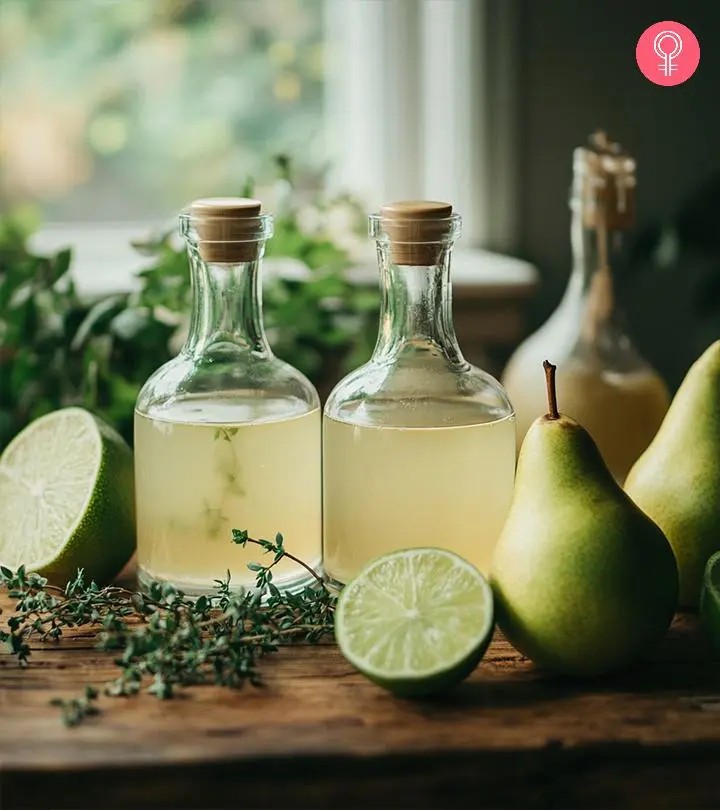
Image: Midjourney/ StyleCraze Design Team
Vinegar has multiple benefits on your skin. You can use vinegar for skin issues like body odor and dullness. As a common item found in almost every kitchen, it is a wonderful solution to attain that much-loved skin glow and radiance. Wondering how to incorporate it into your skin care routine? We can help you. This article will help you find different ways to include vinegar in your beauty regimen. Keep reading!

In This Article
Why Use Vinegar For Your Skin?
Vinegar is a common kitchen condiment that is made by combining acetic acid, water, and trace compounds, and may sometimes include flavoring agents. Vinegar (both white and apple cider vinegar) helps in restoring the pH balance of your skin. This, in turn, helps treat itchy and dry skin, acne, and flaky skin. Compared to the commercially available soaps and face washes that are loaded with chemicals and preservatives, vinegar is a natural and safer way to rejuvenate your skin and make it glow.
Caution: Never use apple cider vinegar or any other vinegar in the undiluted form as it might burn your skin.
Let us now look at the benefits of using vinegar for your skin.
Key Takeaways
- Vinegar (white and apple cider vinegar) may help restore the pH balance of your skin.
- Vinegar may rejuvenate and add glow to your skin.
- It may be used to wash your hair and body to soothe your dry skin.
- Its antibacterial properties reduce the formation of pimples, acne, and other blemishes.
- Always dilute the vinegar to avoid burning your skin.
Benefits Of Vinegar For The Skin
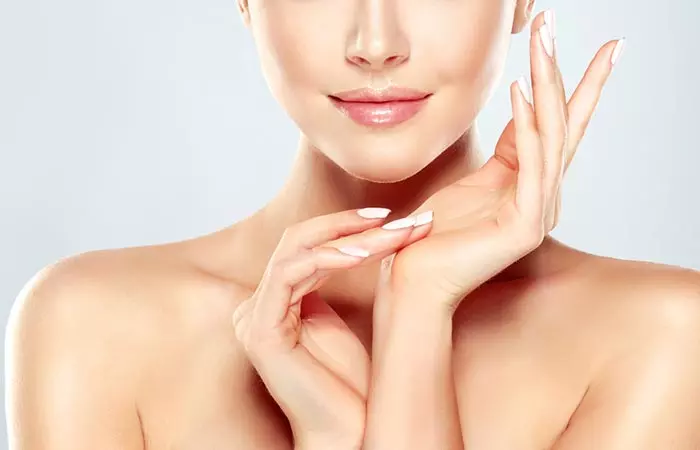
1. Lightens And Prevents Blemishes, Acne, And Pimples
Vinegar has antibacterial and antifungal properties, which help in eliminating bacteria from your skin, thus keeping acne and blemishes at bay (1), (2), (3), (4).
2. Eliminates Age-related Spots
Apple cider vinegar contains hydroxy acids that slough off the dead skin cells, thus lightening age-related spots (5). Malic and citric acids may help remove dead skin cells by breaking the bonds that hold them together, making the skin smoother (6).
3. Helps Maintain The pH Of Your Skin
Vinegar has a pH-balancing effect on your skin, preventing it from becoming excessively oily or dry (7). It unclogs your pores and works as a good skin cleanser.
4. Minimizes Wrinkles
Applying diluted vinegar regularly helps delay the appearance of wrinkles and fine lines on your skin.
5. Removes All Toxins From Your Face
Regular use of vinegar draws out all toxins from your skin, leaving it radiant and youthful.
6. Soothes Sunburns
Vinegar has antiseptic properties and helps relieve pain. Research suggests that the acetic acid in vinegar has strong bactericidal properties that may be a useful local antiseptic (8). Simply dab some vinegar on your sunburn and watch it heal.
7. May Heal Skin Infections
Vinegar is rich in antioxidant and antimicrobial properties (1). This makes it a useful ingredient in treating bacterial and fungal infections. It has also been proven to aid in soothing pruritus (severe itching), stretch marks, and head lice removal.
8. May Help Remove Skin Tags
Anecdotal evidence suggests using apple cider vinegar for skin tag may work wonders. Applying vinegar or ACV to the skin tags regularly for extended periods may make them gradually fall off by themselves. However, there are no scientific studies to back the claim or vouch for the safety of the process.
9. May Help Treat Fungal Infections
Vinegar, particularly apple cider vinegar, is known for its antifungal properties due to its high acetic acid content (2). This acidic environment helps inhibit the growth of fungi. It is a popular natural remedy for treating fungal infections like athlete’s foot, nail fungus, and yeast infections.
A blogger shared their experience of using vinegar to remove skin tags. They soaked a small piece of cotton pad in vinegar and secured it with a band-aid on the skin tag overnight. They said, “Skin tag turned black and fell off in about 3-5 days with no bleeding and no scarring (i)”.
These were the magical uses of this simple ingredient. But how can you use vinegar to achieve glowing skin? Scroll down to find out.
How To Use Vinegar On Your Skin
1. As A Facial Toner
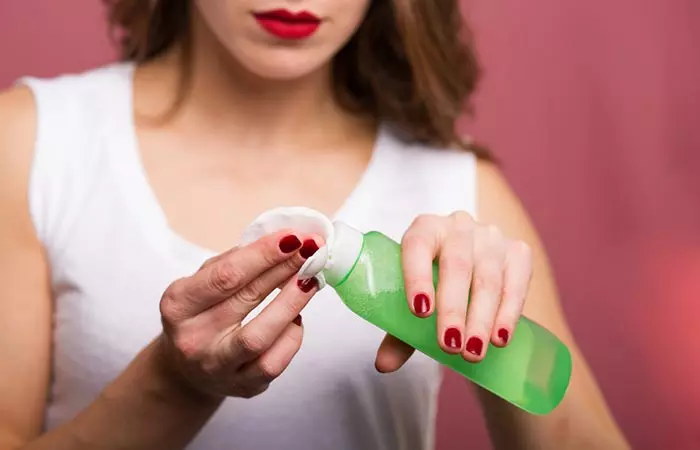
You Will Need
- 1 tablespoon of vinegar (white or apple cider vinegar)
- 2 cups of water
- 1 tablespoon of aloe vera gel (optional)
Time
1-2 minutes
Method
- Mix all the ingredients and store in a bottle.
- Dab a cotton ball with the toner.
- Apply it to your face and neck.
How Often?
Do this it 2-3 times a day or every time you wash your face.
Why This Works
Vinegar has astringenti The chemical property of a substance to shrink soft organic body tissues and skin cells that dry up secretions.
has astringenti properties, and it also contains hydroxy and acetic acids. As a result, it works as an excellent skin toner to minimize the appearance of pores and promote circulation.
 Quick Tip
Quick Tip2. To Heal Sunburns
You Will Need
- Apple cider or white vinegar
- Water
Time
1-2 minutes
Method
- Mix apple cider vinegar with water (there is no fixed ratio, but make sure the vinegar is well diluted).
- Pour the mixture into a spray bottle and spray it on the sunburned area.
- You can also dip a cloth in the mixture, wring it and pat it on the sunburned area.
- Or you can add the diluted mixture to a bucket of water and take a bath with it.
How Often?
Do this 2-3 times a day.
Why This Works
Vinegar has antiseptic properties and is a good sunburn remedy. It also restores the pH balance of your skin, promotes cell regeneration and healing, and prevents blistering.
3. As A Treatment For Acne And Blemishes
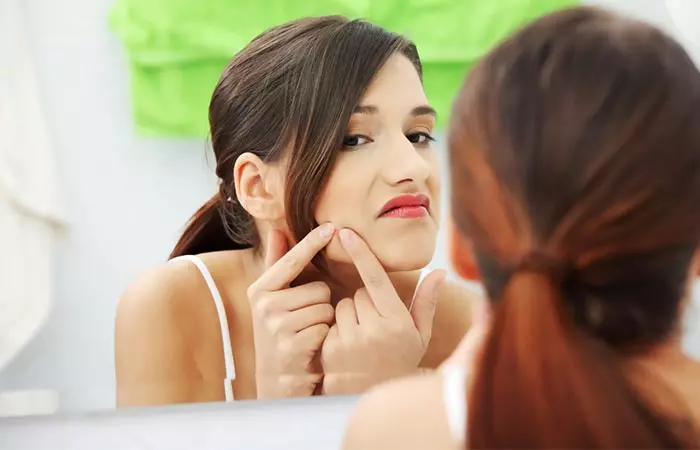
You Will Need
- 2 tablespoons of vinegar
- 2 tablespoons of aloe vera gel
- Water
Time
1-2 minutes
Method
- Mix the ingredients and transfer the mixture to a spray bottle.
- Spray it on your face.
How Often?
Spray every 1-2 hours throughout the day.
Why This Works
The acidity of the vinegar dries out the acne and pimples, and its antibacterial properties eliminate the pimple-causing bacteria (9).
4. To Heal Razor Bumps
You Will Need
Diluted apple cider vinegar
Time
1 minute
Method
- Splash the affected area with diluted apple cider vinegar.
- Leave it to air dry.
How Often?
Twice a day or until the razor bumps disappear.
Why This Works
Apple cider vinegar has anti-inflammatory properties, which help in soothing irritated skin (10). The acetic acid in it softens the skin, thus facilitating easy removal of ingrown hair.
5. As An Antiseptic For Itchy Skin
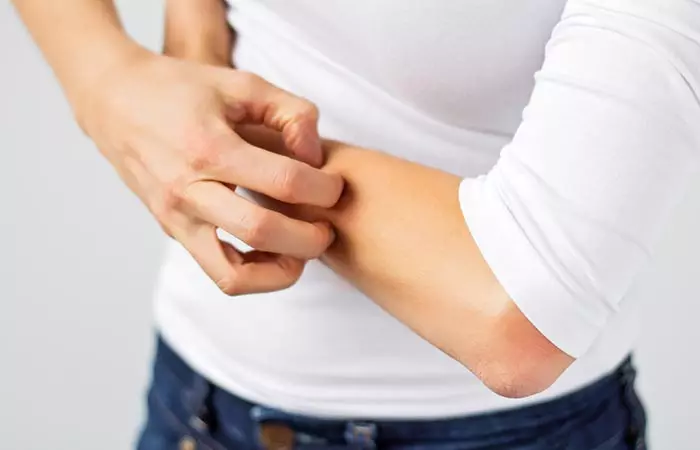
You Will Need
Diluted apple cider vinegar (or white vinegar)
Time
1 minute
Method
- Saturate a cotton pad with diluted apple cider vinegar (or white vinegar).
- Dab the pad on the affected area and let it dry.
How Often?
Until the rash heals.
Why This Works
Bug bites, poison ivy, and rashes – anything can cause itchy skin. Apple cider vinegar exhibits excellent antiseptic and antifungal properties that kill the infection-causing fungi and heal the affected area (11).
Note: Use raw and organic apple cider vinegar for best results.
6. For Eliminating Body Odor
You Will Need
- A bucket of water
- 1/2 cup of white or apple cider vinegar
Time
2-3 minutes
Method
Pour the cup of vinegar into a bucket of water and use it for bathing.
How Often?
Twice a day.
Why This Works
Sweating and bacteria often result in body odor. Vinegar has antifungal and antibacterial properties that help in fighting these odor-causing bacteria.
7. As A Facial And Hand Scrub
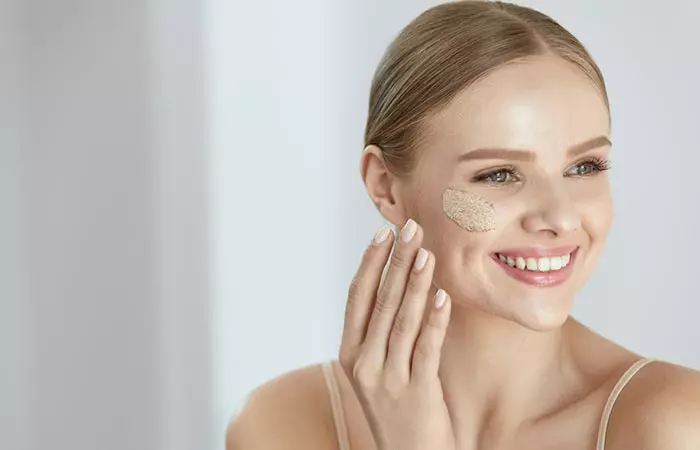
You Will Need
- 1 tablespoon of white vinegar
- 2 tablespoons of coarsely grounded rice
Time
2- 3 minutes
Method
- Take a bowl and mix the ground rice with vinegar.
- Massage your face and hands with this scrub for 15 minutes.
How Often?
Once or twice a week.
Why This Works
Vinegar is excellent for skin exfoliation. It eliminates dead skin cells and helps rejuvenate your skin. This scrub makes your skin glowing and smooth without causing any irritation.
8. For Managing Dandruff
You Will Need
- 2 tablespoons of warm water
- 2 tablespoons of apple cider vinegar
Time
1-2 minutes
Method
- Mix the water and vinegar in a bowl.
- Massage the mixture into your scalp and leave it on for at least 5 minutes.
- Wash with lukewarm water.
How Often?
Twice or thrice a week or as long as the problem persists.
Why This Works
Vinegar is known for its antifungal properties that help in destroying the dandruff-causing fungus (12). If you do not have vinegar, you may also try using apple cider vinegar for dandruff removal. Anecdotal evidence suggests it’s an excellent DIY solution.
9. To Eliminate Foot Odor

You Will Need
- 1 cup of apple cider vinegar
- Baby wipes or paper towels
Time
1 day
Method
- Soak the baby wipes or paper towels overnight in apple cider vinegar.
- Store them in a ziplock bag in the fridge.
- Use them to wipe your feet.
How Often?
Do this every day.
Why This Works
The acids in apple cider vinegar alter the pH of the skin on your feet and prevent bacterial growth (13). These wipes can also be used as deodorizers for your underarms.
Note: Some of you may find the smell of apple cider vinegar disgusting, but don’t worry, the smell doesn’t linger for long.
10. To Reduce Oiliness
You Will Need
- 2 cups of water
- 1 cup of vinegar
- Cotton pads
- Spray bottle
Time
1-2 minutes
Method
- Mix the vinegar and water.
- Dab a cotton pad in this solution and wipe your face with it.
- You may even use a spray bottle to spray it on your face.
How Often?
Twice or thrice a day.
Why This Works
The acidic and astringenti The chemical property of a substance to shrink soft organic body tissues and skin cells that dry up secretions. properties of the vinegar help absorb excess oil, making your skin smooth.
Quick Tip: Leave it on overnight to watch your age spots vanish.
11. To Heal Cracked Heels
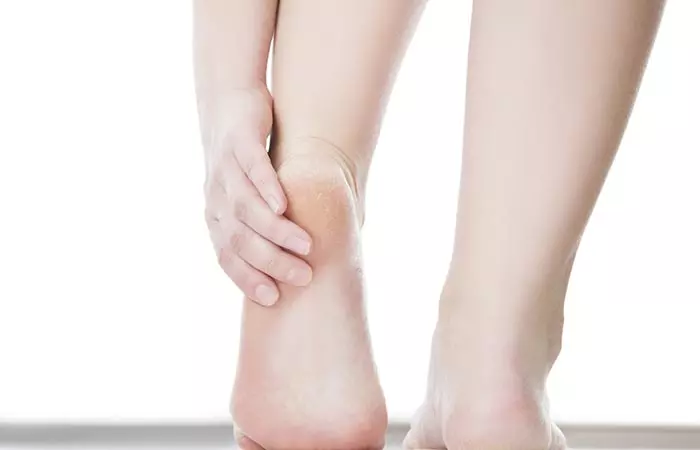
You Will Need
- 1 cup of white vinegar (or apple cider vinegar)
- 2 cups of water
- 1 cup of curd
- Pumice stone
Time
25-30 minutes
Method
There are two ways you can treat your cracked heels:
Method 1
- Mix the white vinegar with lukewarm water.
- Soak your feet in this for 20-25 minutes and then scrub the dead skin cells with a pumice stone.
Method 2
- Mix the white vinegar with a cup of curd.
- Apply it on the cracked heels, leave it on for a few minutes and then scrub it off.
How Often?
Repeat this process twice daily until the heels heal. Follow it up with a good moisturizer.
Why This Works
The antibacterial and moisturizing properties of curd work in tandem with the vinegar to remove the dead skin cells and fill the cracks.
 Quick Tip
Quick Tip12. To Detoxify Your Skin
You Will Need
- 1 teaspoon of vinegar
- Bentonite clay (you may use Fuller’s Earth or any other clay)
Time
2 minutes
Method
- Mix vinegar with clay and make a thick paste.
- Apply the pack all over your face.
How Often?
Twice a week.
Why This Works
The vinegar exfoliates your skin and balances its pH, while the clay extracts all the impurities from the pores.
13. To Clear Skin Pigmentation
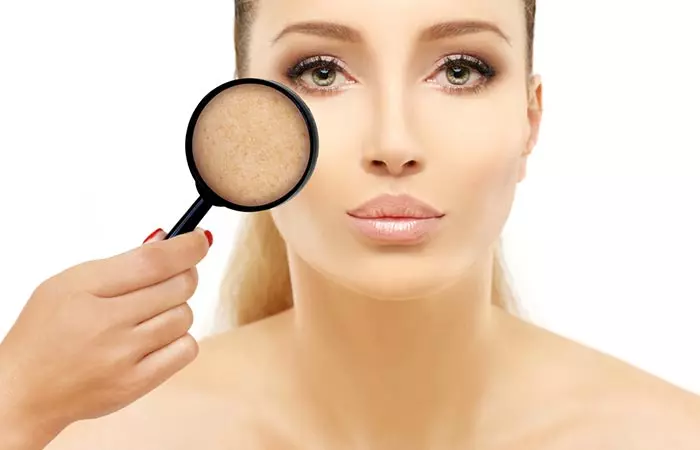
You Will Need
- 1 teaspoon of white vinegar
- 1 teaspoon of onion juice
- 2-3 teaspoons of rosewater
Time
2 minutes
Method
- Mix all the ingredients and pour into a spray bottle.
- Spray it on your face.
- Leave it on for a while and then wash it off.
How Often?
Once a week.
Why This Works
Rosewater has anti-inflammatory properties and absorbs excess oil from the skin. Vinegar has astringenti The chemical property of a substance to shrink soft organic body tissues and skin cells that dry up secretions. properties and works best as a hyperpigmentation treatment to reduce dark spots and patches (14).
14. To Remove Blackheads
You Will Need
- 2 ripe strawberries
- 1 teaspoon of white vinegar (diluted)
Time
2 minutes
Method
- Make a paste of the strawberries and mix white vinegar in it. Blend well.
- Apply the paste on the affected area.
- Gently massage for a few minutes and then wash it off.
How Often?
Once a week.
Why This Works
Strawberry contains folic acidi A form of vitamin B9 that helps develop new healthy cells in the body and prevents deficiency and pregnancy-related complications. and vitamin C that help in cell regeneration, remove harmful toxins, and aid collageni A protein in connective tissues, tendons, and the skin that promotes skin elasticity and prevents wrinkling. synthesis (15) (16). Vinegar absorbs excess oil and cleans the pores, thus helping in getting rid of blackheads.
15. To Treat Dry And Flaky Skin
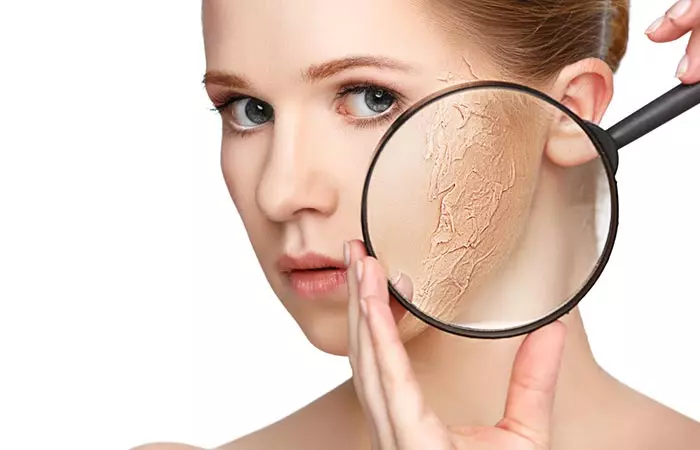
You Will Need
- 1 teaspoon of white vinegar
- 2 teaspoons of olive oil
Time
1 minute
Method
- Blend the oil and vinegar and apply it to your face or the affected area.
- Leave it on for 10 minutes and then wash with lukewarm water.
How Often?
Once a day.
Why This Works
Olive oil moisturizes and rejuvenates your skin, and vinegar helps in restoring the natural acidity of your skin (17).
16. To Treat Skin Warts
You Will Need
- 1 teaspoon of apple cider vinegar
- 2 teaspoons of water
Time
1-2 minutes
Method
- Mix water with apple cider vinegar and soak cotton balls in the solution.
- Apply the cotton ball to the wart.
- Cover it with a bandage and leave it on overnight.
How Often?
Daily (until the wart falls off).
Why This Works
The acetic acid in the vinegar kills bacteria and viruses causing the wart, making the wart fall off in a few days (18).
17. To Treat Ringworm Effectively
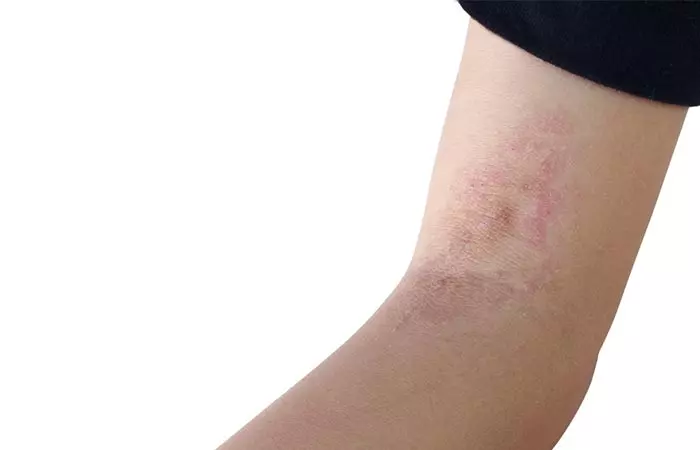
You Will Need
- Apple cider vinegar (dilute it a bit)
- Cotton pads
Time
1 minute
Method
- Soak the cotton pad in undiluted vinegar.
- Gently brush the pad over the affected area.
How Often?
Repeat this 3 times every day.
Why This Works
Apple cider vinegar has strong antifungal properties that may help in curing ringworm when applied topically.
Vinegar works wonders for your skin but only if you use it carefully. You need to keep a few things in mind before including it in your daily skin care regimen. They are as discussed below.
A Few Tips To Consider
- Don’t forget to dilute the vinegar (unless advised otherwise by any skincare specialist) as it might cause a burning sensation.
- Always do a patch test before applying vinegar. Sprinkle a few drops on your arm and wait for a few minutes to ensure there isn’t any skin irritation.
- Avoid consuming it orally if you have diabetes, peptic ulceri A sore on the lining of the small intestine, esophagus, and stomach caused by damages from stomach acids in the digestive tract. , or heartburn. The acidic nature of vinegar might worsen the problem.
- If you are pregnant or nursing, consult a doctor before using vinegar.
- Avoid using strong perfumes or soaps while using vinegar as they might further irritate your skin.
- Although apple cider vinegar is touted as the best treatment to get rid of dandruff. You may use apple cider vinegar hair rinse, as it may help soothe the scalp and enhance shine. However, avoid using it excessively as it can make your hair brittle.
- If you have any skin ailment and are using any prescribed medication, consult the doctor before using vinegar along with the medicine. The acidic nature of the vinegar often reacts with the chemicals in the skin ointments and medicines.
- Vinegar cannot be used the same way on all skin types.
- Oily Skin: Use it a max of 4 times a week. Avoid overuse as it may strip natural oils and cause dryness.
- Dry Skin: Since dry skin is more sensitive, always test on a small area before full application. If you notice any flaking, redness, or excessive dryness, avoid using it.
- Combination Skin: Limit usage to 1-2 times a week to avoid disrupting the skin barrier.
- Sensitive Skin: Never apply to broken or inflamed skin, as it may cause burning or irritation.
- Normal Skin: Follow up with a good moisturizer to prevent dryness.
- Always use organic vinegar for best results.
Now that you know the benefits of using vinegar for skin, you should also learn about the potential risks associated with this ingredient. Keep reading.
Potential Side Effects Of Using Vinegar For Skin
While vinegar, particularly apple cider vinegar, is often used in skincare for its antibacterial and exfoliating properties, it may not be suitable for everyone.
- Its acidic nature can cause irritation, especially for those with sensitive skin, leading to redness, dryness, or a burning sensation (19). Using undiluted vinegar or applying it to broken or inflamed skin may worsen irritation and delay healing.
- In some cases, prolonged or excessive use can disrupt the skin’s natural barrier, making it more prone to dryness and sensitivity.
- Using vinegar on the skin can be risky, especially when mixed with other acidic ingredients.
- A study found that combining vinegar with aspirin caused serious skin burns (20). In another case, a 14-year-old girl tried an online remedy using apple cider vinegar to remove moles, but it damaged her skin, leaving painful sores (21).
- Since vinegar is acidic, it can burn or irritate the skin, especially if covered with a bandage or used on sensitive areas.
It is always recommended to consult a doctor before using vinegar for skin treatments to avoid these side effects. To minimize any risk, it’s best to do a patch test before use and consult a dermatologist if you have concerns about how your skin may react.
Infographic: How To Use Vinegar For Common Skin Problems
Vinegar is one of the most commonly available home remedies you can use for several skin issues. Be it for bleaching or eliminating body odor, vinegar can do it all. However, out of all the ways discussed above, a few important methods can solve your common skin problems. Check out the infographic to know about the most effective ways in which you can use vinegar. Illustration: StyleCraze Design Team

As summer hits, it brings with it a slew of skin problems. Using vinegar for skin is a simple and inexpensive approach to treat various skin issues and maintain skin health, but only when used correctly. It is a natural skin brightener and rejuvenator. Now that you know the numerous advantages of vinegar for skin, do not delay incorporating the finest quality vinegar into your regular beauty routine. However, to prevent unwanted adverse reactions, it is always best to visit a doctor or perform a patch test before using them.
Frequently Asked Questions
Can vinegar help with eczema?
Vinegar may help soothe eczema by balancing skin pH and reducing bacteria, but it should be used with caution to avoid irritation.
Does vinegar remove dark pigmentation?
Dr. Natalie Carlton, MD, FAAD, a dermatologist, says, “From studies, the acetic acid present in apple cider vinegar may brighten pigmentation. Here’s how to use it: In a container, mix water and apple cider vinegar in equivalence. Apply to your dark areas, then wait two to three minutes before washing it off.”
What are the risks of using apple cider vinegar?
Dr. Carlton says, “Apple cider vinegar can irritate, dry out, and harm the skin. Never use it without first diluting it with water. However, diluting the vinegar does not make it safe; it still has the potential to be harmful. A dermatologist should be consulted before applying ACV to the skin.”
How can I incorporate vinegar into my skin care routine?
Dr. Carlton advises, “Apple cider vinegar works well as a face cleanser to remove dirt and bacteria from the skin. Mix the following ingredients to make a homemade apple cider vinegar face wash: a cup of hot water and 1 tablespoon of apple cider vinegar. As opposed to using harsh soaps or chemicals, use apple cider vinegar to clean softly.”
Can I spray apple cider vinegar on my eczema?
Yes, you may use it for eczema relief. According to Dr. Carlton, “Your skin’s pH is raised if you have eczema, which prevents this barrier from working correctly. Without it, irritants enter, and moisture escapes. Since apple cider vinegar is acidic, applying it to the skin could assist in restoring its pH balance.”
Can apple cider vinegar damage your face?
Yes. Direct application of apple cider vinegar can cause skin irritation, redness, and dryness. Ensure that apple cider vinegar is diluted with water before application (19).
How long does apple cider vinegar take for dark spot treatment?
While current scientific evidence indicates that apple cider vinegar may treat dark spots, there is no information to tell us how long it will take to show results. You will have to use apple cider vinegar a few times before it starts working (22).
Is apple cider vinegar good for dark inner thighs?
Possibly. Anecdotal evidence suggests that apple cider vinegar may lighten your inner thighs over time.
Illustration: Surprising Ways To Use Vinegar For Your Skin

Image: Stable Diffusion/StyleCraze Design Team
Discover the amazing benefits of apple cider vinegar for your skin and hair. Click the video to see how it can help you look and feel your best!
Personal Experience: Source
StyleCraze's articles are interwoven with authentic personal narratives that provide depth and resonance to our content. Below are the sources of the personal accounts referenced in this article.
i. At-home skin tag removal experiment with Apple Cider Vinegarhttps://dailywanderlust.wordpress.com/2012/05/02/at-home-skin-tag-removal-experiment-with-apple-cider-vinegar/
References
Articles on StyleCraze are backed by verified information from peer-reviewed and academic research papers, reputed organizations, research institutions, and medical associations to ensure accuracy and relevance. Read our editorial policy to learn more.
- Acetic acid and the skin: a review of vinegar in dermatology
https://pubmed.ncbi.nlm.nih.gov/34350993/ - Authenticating apple cider vinegar’s home remedy claims: antibacterial antifungal antiviral properties and cytotoxicity aspect
https://pubmed.ncbi.nlm.nih.gov/29224370/ - Herbal Remedies for Acne Vulgaris from the Viewpoint of Persian Medicine
https://www.ncbi.nlm.nih.gov/pmc/articles/PMC7475631/ - Contemporary pursuits of vinegar from scullery to dermatology
https://www.researchgate.net/publication/343772765_Contemporary_pursuits_of_vinegar_from_scullery_to_dermatology - Exploring the Bioactive Compounds in Some Apple Vinegar Samples and Their Biological Activities
https://pmc.ncbi.nlm.nih.gov/articles/PMC10675503/ - Topical malic acid in combination with citric acid: an option to treat recalcitrant warts
https://www.researchgate.net/publication/280087393_Topical_malic_acid_in_combination_with_citric_acid_an_option_to_treat_recalcitrant_warts - Art of prevention: The importance of bath time and avoiding extended exposure to irritating and allergenic chemicals
https://www.ncbi.nlm.nih.gov/pmc/articles/PMC6637102/ - The antimicrobial effect of acetic acid–an alternative to common local antiseptics?
https://pubmed.ncbi.nlm.nih.gov/19286325/ - Treatment Modalities for Acne
https://www.ncbi.nlm.nih.gov/pmc/articles/PMC6273829/ - Home Remedy Use Among African American and White Older Adults
https://www.ncbi.nlm.nih.gov/pmc/articles/PMC4631220/ - Apple cider vinegar soaks do not alter the skin bacterial microbiome in atopic dermatitis
https://www.ncbi.nlm.nih.gov/pmc/articles/PMC8172074/ - Preparation and Optimization of Garlic Oil/Apple Cider Vinegar Nanoemulsion Loaded with Minoxidil to Treat Alopecia
https://www.ncbi.nlm.nih.gov/pmc/articles/PMC8706394/ - What helps to get rid of athlete’s foot?
https://www.ncbi.nlm.nih.gov/books/NBK279548/ - Use of organic acids in acne and skin discolorations therapy
https://pubmed.ncbi.nlm.nih.gov/25811473/ - Effects of acute strawberry consumption on serum levels of vitamin C and folic acid, the antioxidant potential of LDL and blood glucose response: a randomised cross-over controlled trial
https://pubmed.ncbi.nlm.nih.gov/37008410/ - The Roles of Vitamin C in Skin Health
https://pmc.ncbi.nlm.nih.gov/articles/PMC5579659/ - A Comprehensive Review of Plant-Based Cosmetic Oils (Virgin Coconut Oil, Olive Oil, Argan Oil, and Jojoba Oil): Chemical and Biological Properties and Their Cosmeceutical Applications
https://pmc.ncbi.nlm.nih.gov/articles/PMC11541506/ - Vinegar: Medicinal Uses and Antiglycemic Effect
https://www.ncbi.nlm.nih.gov/pmc/articles/PMC1785201/ - Apple Cider Vinegar; Health Benefits and unwanted effects
https://www.researchgate.net/publication/334735708_Apple_Cider_Vinegar_Health_Benefits_and_unwanted_effects - Harmful misuse of white vinegar in a wrong combination
https://pmc.ncbi.nlm.nih.gov/articles/PMC7950042/ - Chemical Burn from Vinegar Following an Internet-based Protocol for Self-removal of Nevi
https://pmc.ncbi.nlm.nih.gov/articles/PMC4479370/ - The effect of topical application of apple vinegar on striae gravidarum: A randomized clinical trial
https://www.researchgate.net/publication/326297021_The_effect_of_topical_application_of_apple_vinegar_on_striae_gravidarum_A_randomized_clinical_trial
Read full bio of Dr Jovana Majstorovic
Read full bio of Ramona Sinha
Read full bio of Eshna Das
Read full bio of Shiboli Chakraborti






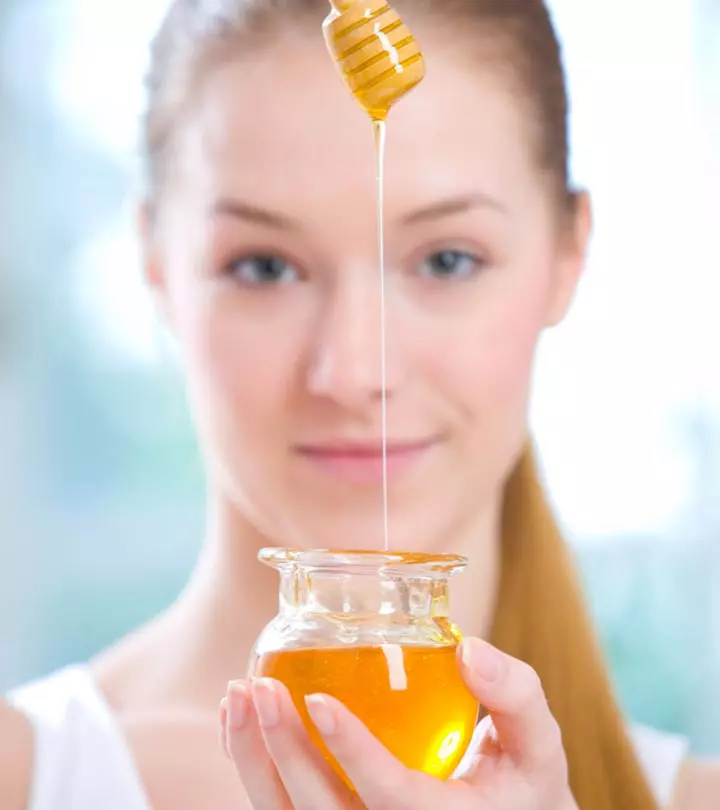

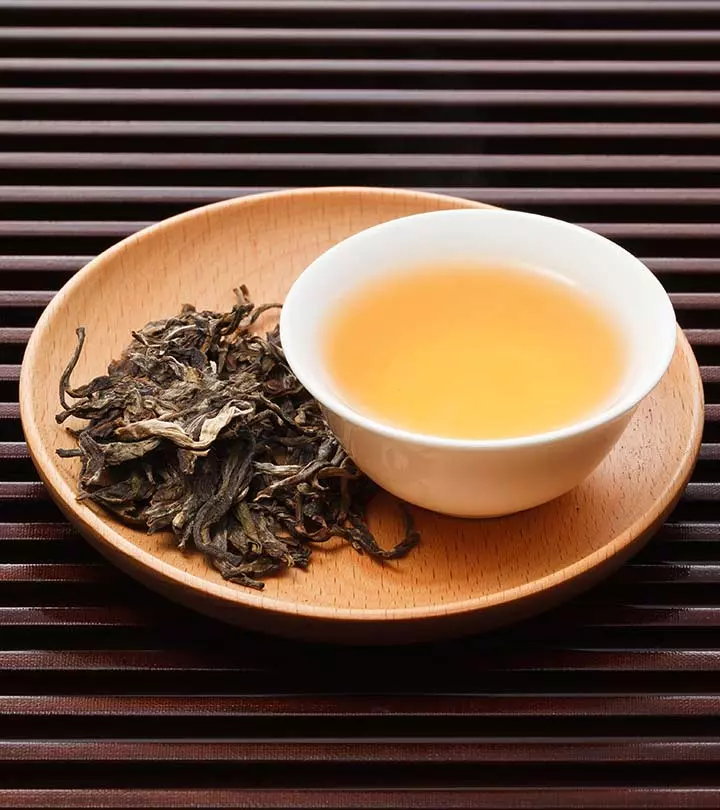
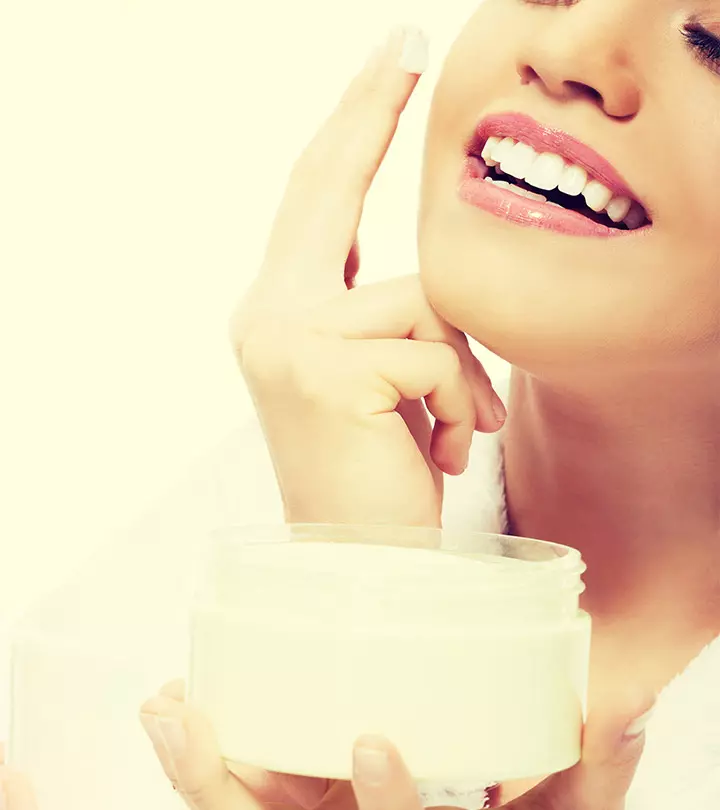
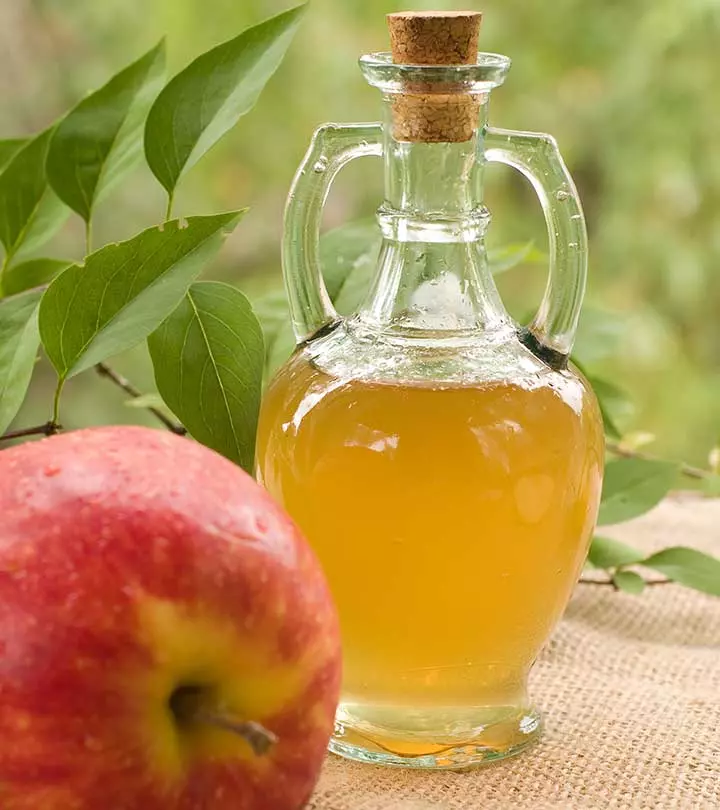

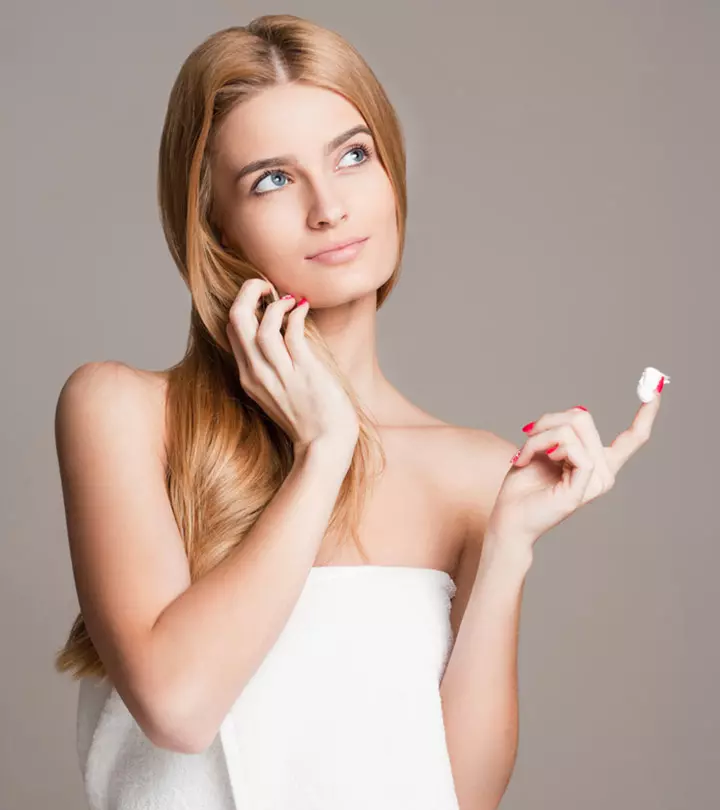
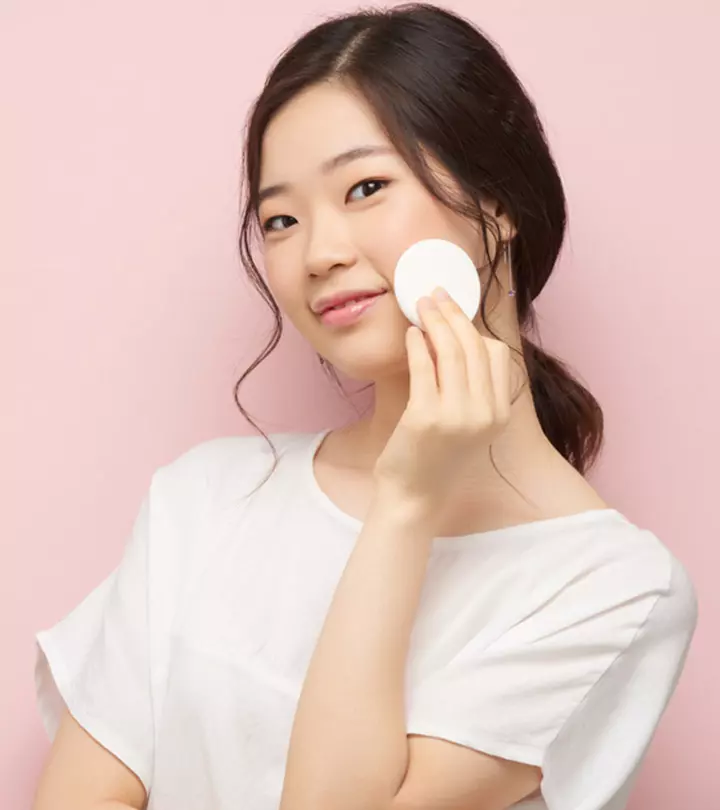
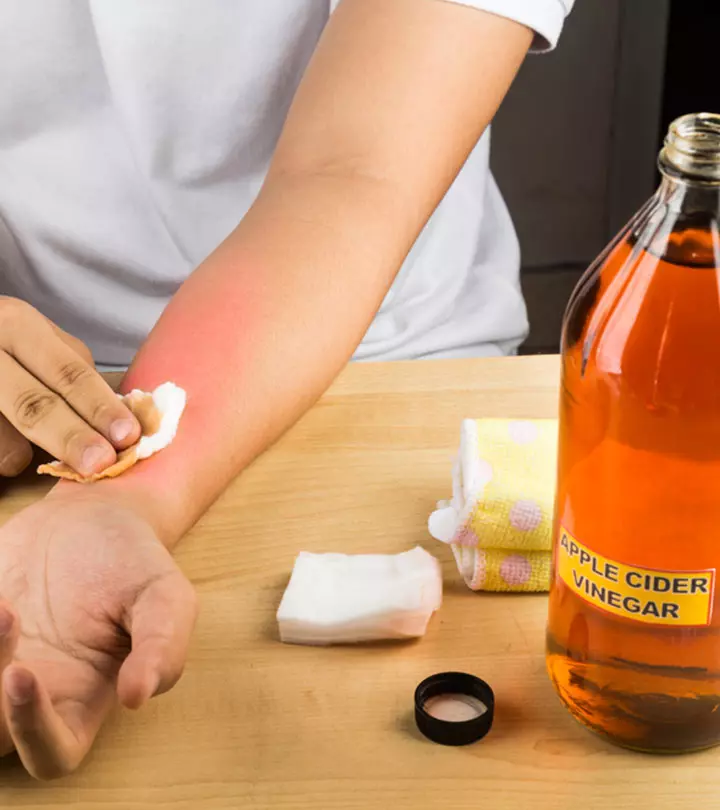

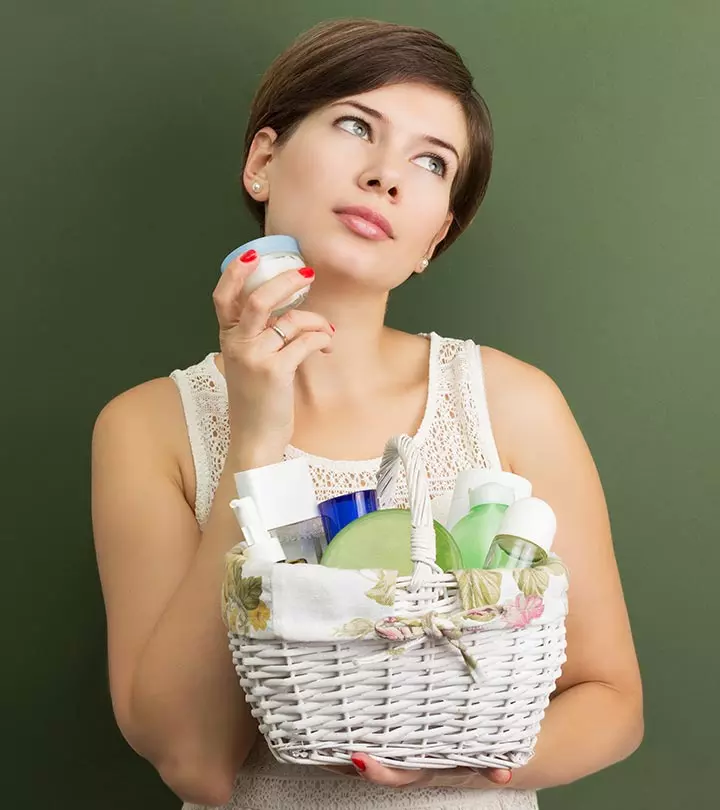
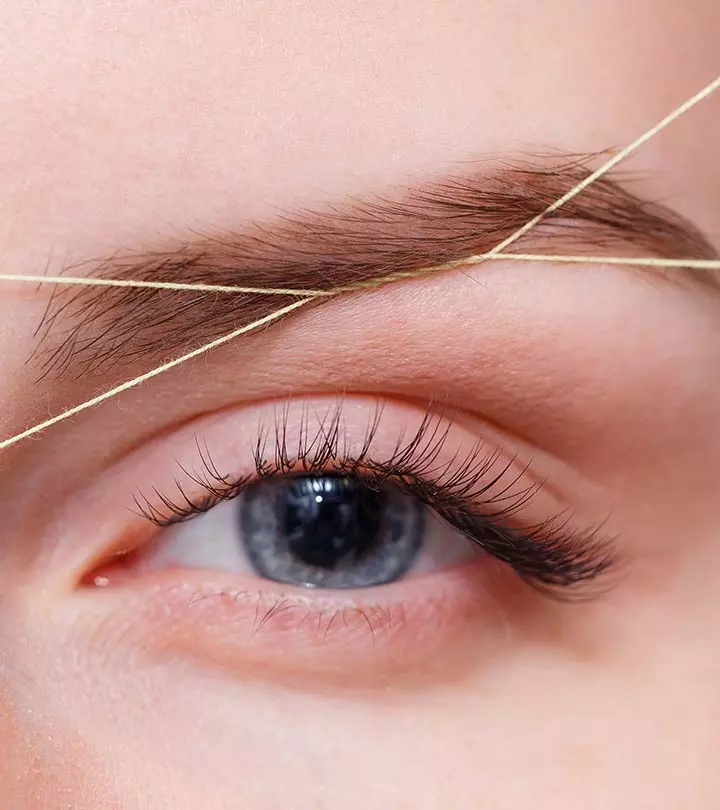

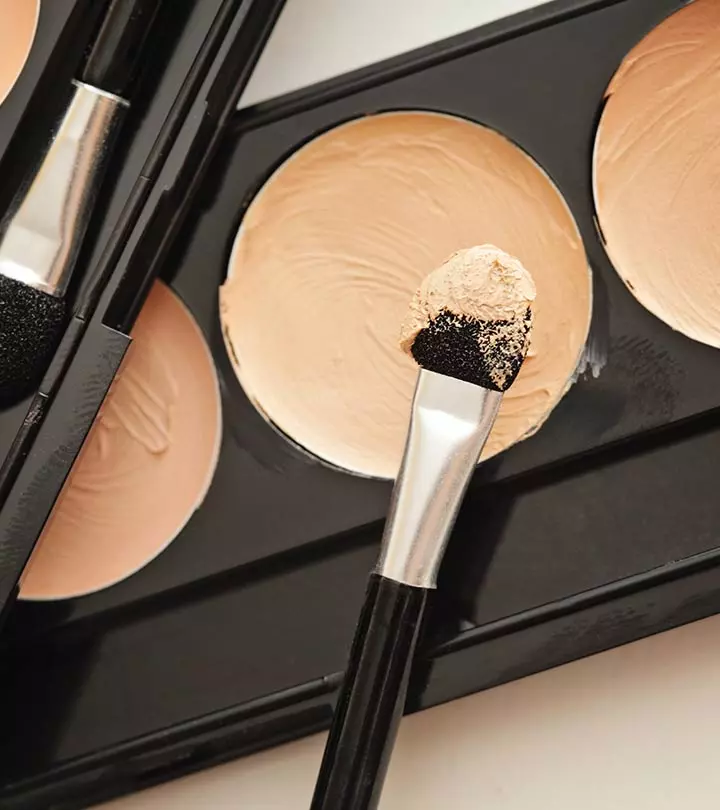

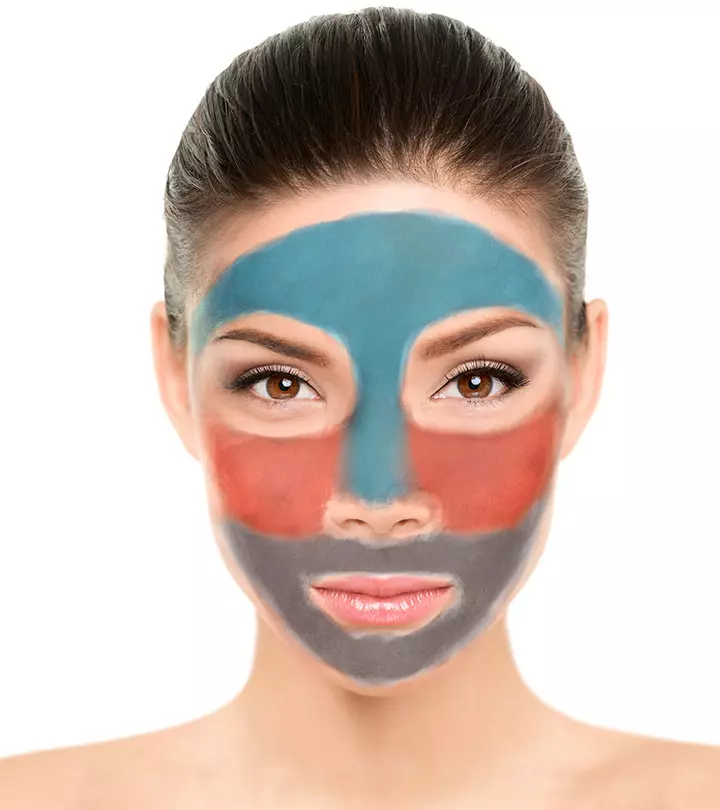
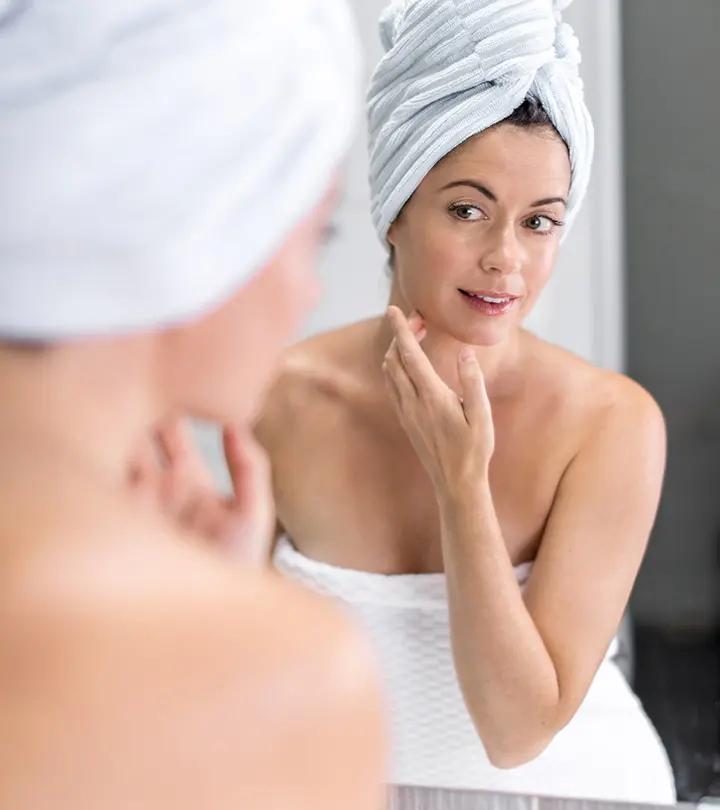
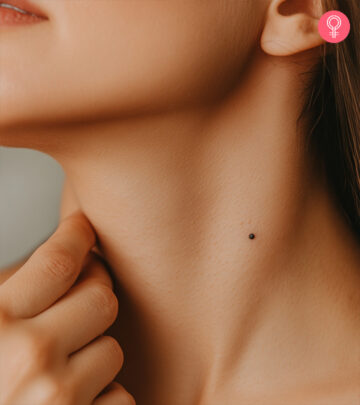
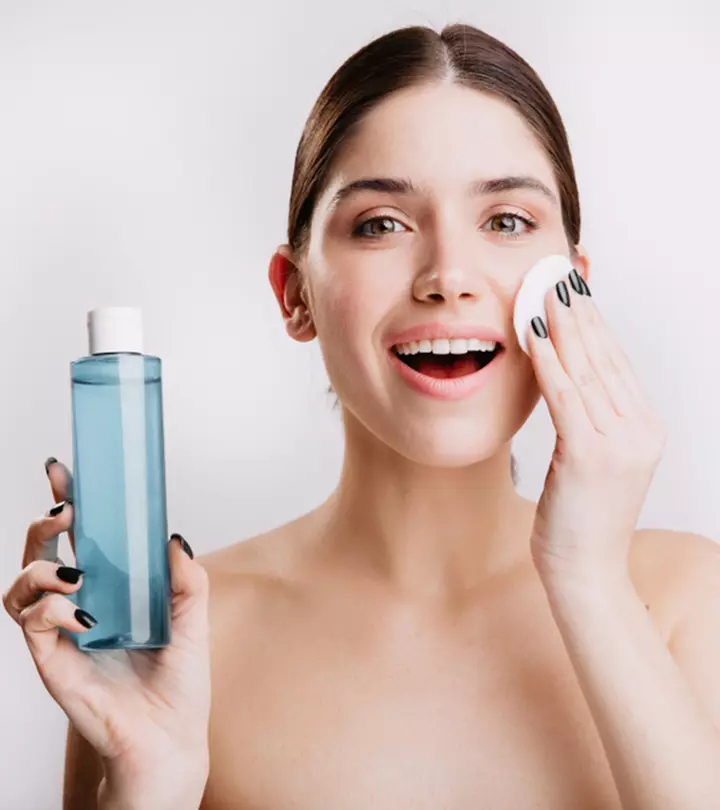
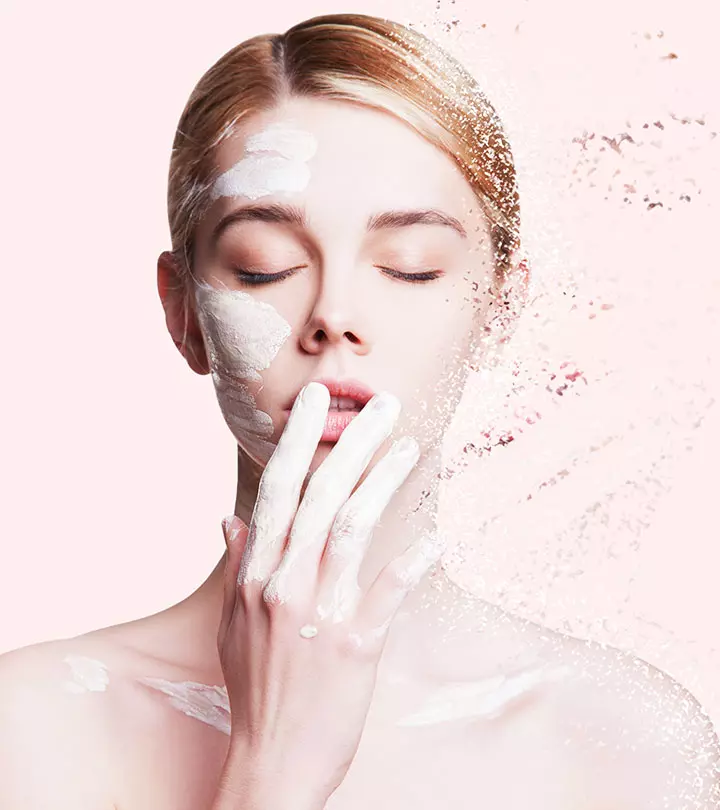
Community Experiences
Join the conversation and become a part of our empowering community! Share your stories, experiences, and insights to connect with other beauty, lifestyle, and health enthusiasts.